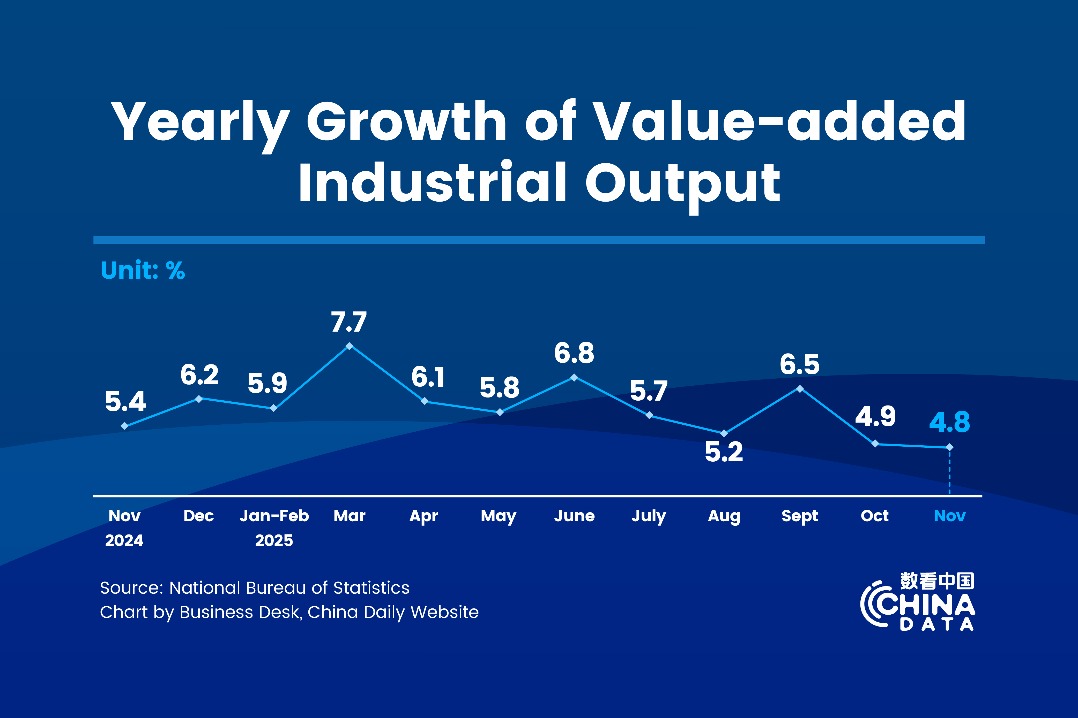Domestic winemakers remain in high spirits


Online sales of the fermented potables surged 20 percent last year
Despite an unprecedented downturn caused by the COVID-19 pandemic, several factors have helped drive the wine industry in China of late, such as the acceleration of e-commerce sales and robust at-home consumption.
Last year, hampered by the pandemic, business performance of wine and liquor retailers globally and in China was nothing to write home about. But global alcohol sales are showing signs of recovery, and are projected to grow in volume by 2.9 percent by the end of this year, according to a new report by wine and spirits analytics firm IWSR.
China has long had an established online market for alcoholic drinks. Last year, sales of wines and spirits via e-commerce channels in China grew by around 20 percent year-on-year, IWSR data showed.
"These are the trends that will underpin the industry's resilience as it pivots to meet consumers where they are in the years to come. Additionally, across many markets, some segments of the population now have significantly more disposable income than they did in 2019, some of which will be spent on alcoholic beverage products," said Mark Meek, CEO of IWSR.
China's biggest wine producer Changyu Wine Group Co Ltd said that despite the hit last year, it is confident of its business this year. The winemaker aims to achieve sales revenue of at least 3.8 billion yuan ($590 million) this year, the company said.
Shandong province-based Changyu achieved sales revenue of 1.13 billion yuan in the first quarter, up 40.75 percent year-on-year. During the period, its net profit reached 287 million yuan, up 22.28 percent on a yearly basis, according to its earnings report.
Changyu said the wine market in China is fragmented. Family consumption of wines in China is still at the nascent stage of development. With low penetration rates of wine in China, there is remarkable growth potential of wine in the nation.
With more young Chinese consumers buying wine online, social media platforms have become important channels for communication between retailers and buyers in a digitalized market.
In China, older millennials were seen driving the most demand for alcohol online. And with a population of almost 400 million millennials in China, over the next five years, online sales of alcohol beverage in China are expected to grow continuously, IWSR said.
"Next, Changyu will focus on upgrading products and further promoting high-end products. We hope our premium wines comparable to imported wines will become more competitive and grab more market share in China," said Sun Jian, general manager of Changyu.
The company has established several vineyards at top production regions globally and fostered a large number of winemakers. In 2006, Changyu set up Chateau Changyu-Moser XV in the eastern foothills of the Helan Mountains, the Ningxia Hui autonomous region.
With abundant sunshine and little rainfall, the zone boasts favorable conditions to grow wine grapes, and it is regarded as one of the golden zones for winemaking. The zone has planted more than 30 varieties of wine grapes-similar to numbers seen in Bordeaux, France and Napa Valley, California.
Changyu's top-end chateau has also been rated as a 4A-level scenic spot in China, and wine produced there serves as a flagship brand of Changyu's premium products.
In early June, China set up a comprehensive experimental zone for the development and opening-up of the wine and grape industries in Ningxia. The pilot zone is the first such in China established for wine production.
Currently, the zone has 101 established vineyards and another 110 being built. Its annual output of wine reached 130 million bottles. Wines produced in Ningxia have been sold in more than 20 countries and regions, including Germany, Belgium, France and Spain, according to the local government.
The region has attracted major international and domestic winemakers to establish their production bases and vineyards locally. Those companies include French wine and spirits groups Pernod Ricard and LVMH Moet Hennessy Diageo, as well as domestic winemaker China Great Wall Wine Co Ltd.




































